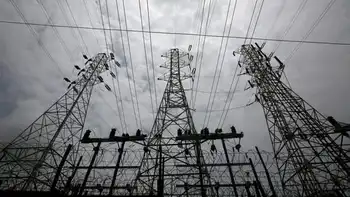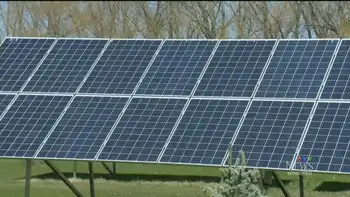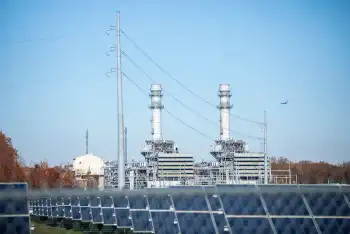Germany pulls the plug on nuclear power plant
STADE, Germany — - STADE, Germany — Germany switched off the first of its 19 nuclear power stations recently, launching what it calls the world's fastest withdrawal from atomic energy.
Germany's centre-left government struck a deal with industry in 2000 to close all nuclear power plants by about 2025 after the Greens made the phase-out a condition for forming a coalition with Chancellor Gerhard Schroeder's Social Democrats in 1998.
It is still unclear if Germany can meet the deadline and how it will replace atomic power, which provides a third of its electricity, while also meeting commitments to cap its emissions of greenhouse gases produced by fossil fuels.
With little fanfare inside the control room, the Stade plant, Germany's second oldest, ceased operations in the morning of November 14th with the simple pressing of two buttons.
"All rods are engaged. We are now out," said shift leader Bernd Schroeder as the reactor near Hamburg shut off.
Green Environment Minister Jurgen Trittin said the closing showed nuclear power had no future in Germany.
"No country is pulling out as quickly as Germany. Up until 2020, one nuclear power plant will be closed on average every year in Germany," he said.
The Greens held a party in Berlin to celebrate, but the plant operator said the 32-year-old reactor would have closed anyway on purely economic grounds without government pressure.
Belgium and Sweden have also announced nuclear phase-out plans. Sweden closed one reactor but postponed further closings after protests from energy-intensive industry.
Related News

India is now the world’s third-largest electricity producer
NEW DELHI - India now generates around 1,160.1 billion units of electricity in financial year 2017, up 4.72% from the previous year. The country is behind only China which produced 6,015 terrawatt hours (TWh. 1 TW = 1,000,000 megawatts) and the US (4,327 TWh), and is ahead of Russia, Japan, Germany, and Canada.
India’s electricity production grew 34% over seven years to 2017, and the country now produces more energy than Japan and Russia, which had 27% and 8.77% more electricity generation capacity installed, respectively, than India seven years ago.
India produced 1,160.10 billion units (BU) of electricity–one…




